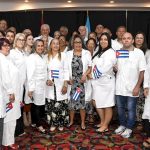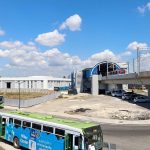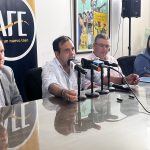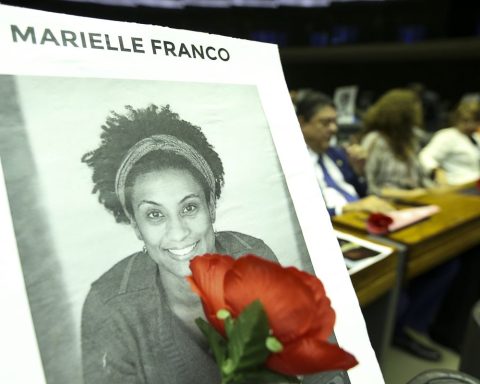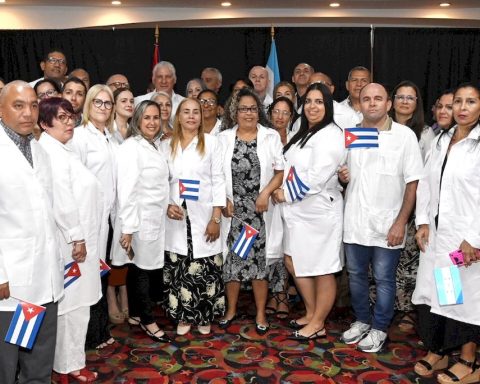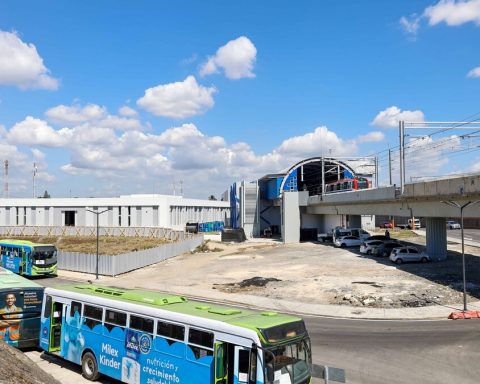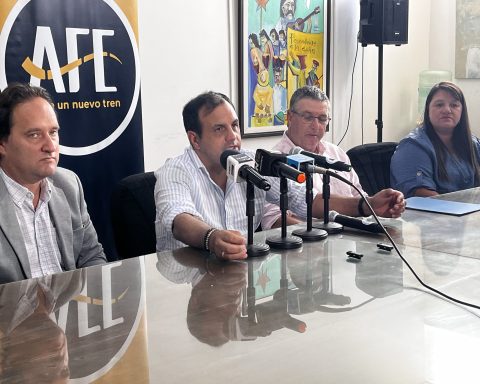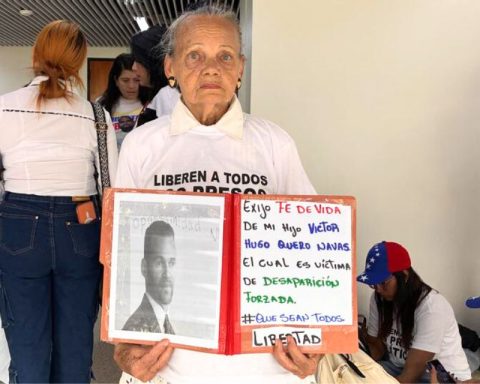May 29, 2023, 10:45 PM
May 29, 2023, 10:45 PM
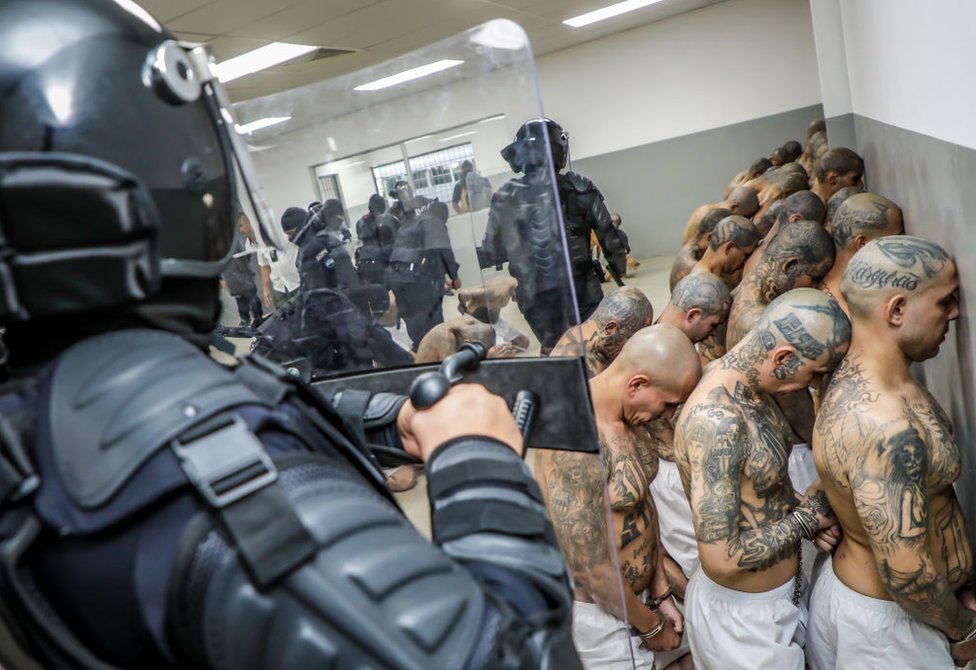
“Hands up. If they come down, we’re going to kill them (…). Only if they’re lucky will they get out of here alive.”
Thus begins the testimony of a 20-year-old man detained during the exception regime in El Salvador, a measure that has been in force for 14 months and that it responds to the so-called “war against gangs” of President Nayib Bukele.
The young man, who was released after being declared innocent, narrates the alleged abuses to which he and other detainees were subjected when they were in the Mariona jail: “While they were kneeling they put electric shocks and one even took blood. Upon entering the sector where they were going to meet, the custodians gave them another beating.”
The case is one of many included in the report on the first year of the emergency regime carried out by cristosalthe main organization in defense of the human rights of civil society in the Central American country, which was presented this Monday.
This is an exhaustive investigation, made on the basis of hundreds of interviews with people who remained imprisoned for months and who were released after being declared innocent, relatives of prisoners and experts, and after contrasting these testimonies with forensic medical documents and police records.
And in addition to collecting testimonies, it concludes that since March 27, 2022 – when the measure came into force – dozens of inmates have died from torture, beatings or lack of health care in the country’s prisons.
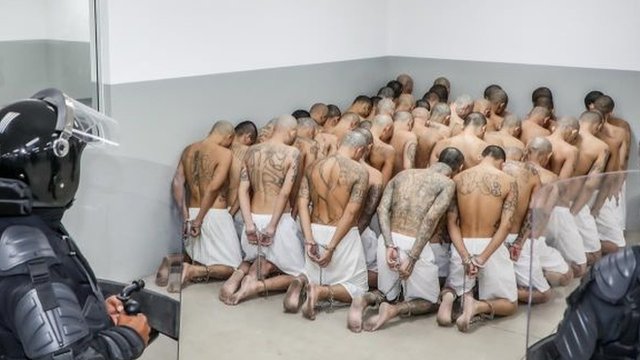
Specifically, Cristosal has documented the death of 153 people in state custodyall detained during the emergency regime.
Of these, 29 died a violent death and another 46 due to “probable violent death” or suspicion of “criminality”, the report specifies, and the presence of lacerations, bruises showing beatings, wounds with sharp or blunt objects, or signs of strangulation or hanging on the corpses.
As an example, he mentions the case of a 52-year-old man, owner of a store and a mill, who for years had been harassed by gang members and forced to provide them with food, who was arrested accused of collaborating with them.
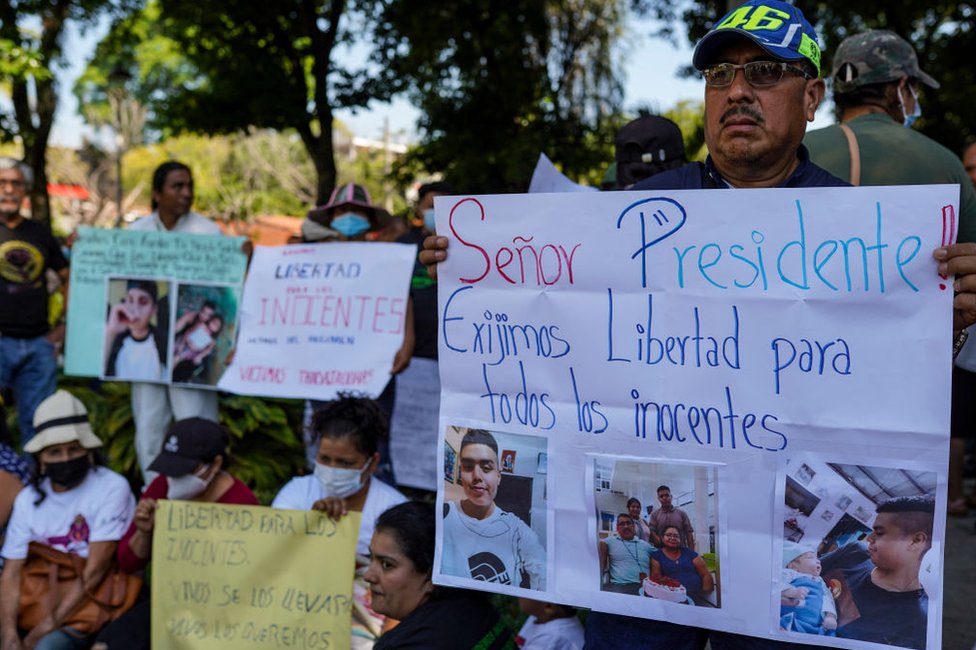
According to the obituary from the Institute of Legal Medicine of El Salvador, “he died of cerebral edema,” says the Cristosal report.
While, the authoritiesSalvadoran s they declared the official information in this regard confidential and maintain that deaths that occur within prisons are due to natural causes.
“I have heard the opposition say that people die in prisons. And that we are somehow killing the inmates or letting them die […] But people die in prisons like they die outside because they get sick, because they get old; there are some who have terminal illnesses, etc.,” Bukele himself said during a live broadcast on October 16 of last year.
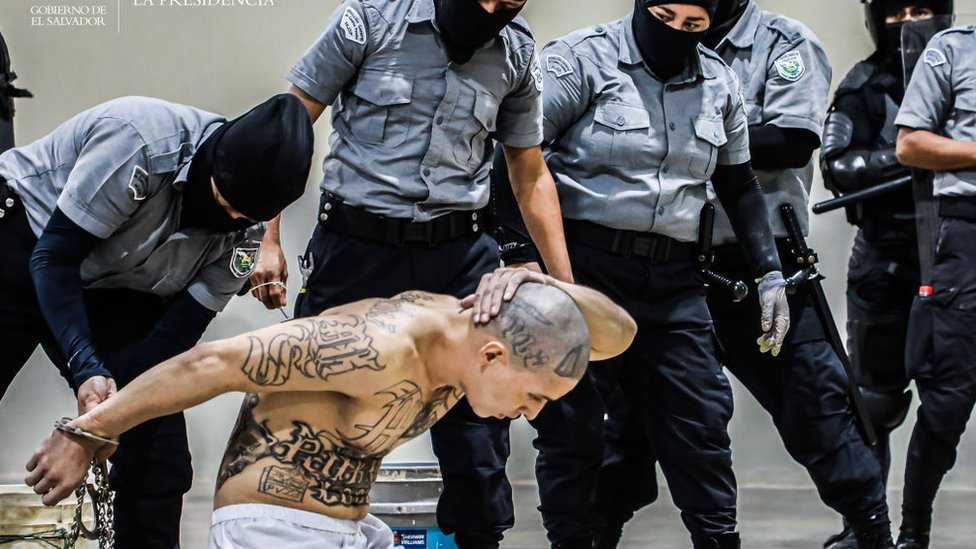
The emergency regime was imposed in El Salvador in response to 76 murders recorded in just 48 hours in March of last year.
According to media research such as The lighthousethe wave of homicides was the product of the rupture of an alleged pact between the government and the gang of MS-13.
Although the US Attorney’s Office itself referred to this dialogue in a recent accusation against gang leaders, the Salvadoran Executive has always denied having carried out any type of negotiation.
During the last year, in which the right to privacy of communications and guarantees of due process were suspended, such as the requirement that any detainee be brought before a judge within 72 hours of their arrest, more than 68,000 people have detained for their alleged relationship with the gangs.
With a population of 6.3 million people, these mass arrests turned El Salvador into the country with the highest rate of prison population of the world.
Relatives and organizations denounce that many of the detainees are innocent.
In an exclusive interview offered to the BBC in March on the occasion of the first year of the emergency regime, Vice President Félix Ulloa acknowledged that, with an operation of these dimensions under way, it is possible that some mistake was made and some people were arrested without links with the Mara Salvatrucha or Barrio 18.
Although he stressed: “More than 90% of the population agrees with the state of exception and they want it to be extendedand the only ones who complain are the activists who don’t know what is happening in the country and the political opposition”.
“The permanent suspension of constitutional guarantees under the figure of the emergency regime is the only public policy tool that the government implements,” denounces Cristosal.
Remember that you can receive notifications from BBC Mundo. Download the new version of our app and activate them so you don’t miss out on our best content.







